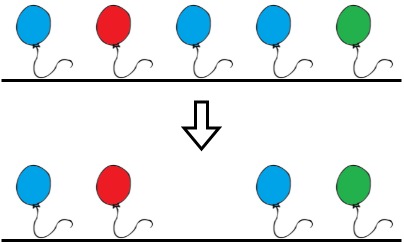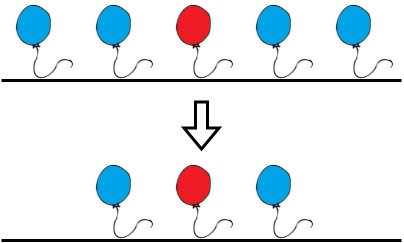H4 visa interview questions and answers:
1. What is your relationship to the primary H1B visa holder?
- Answer: I am the spouse/dependent child of the primary H1B visa holder.
2. Can you provide proof of your relationship with the primary H1B visa holder?
- Answer: Yes, I can provide the necessary documentation to prove my relationship with the primary H1B visa holder, such as a marriage certificate (for spouses) or a birth certificate (for dependent children).
3. What is the purpose of your visit to the United States?
- Answer: The purpose of my visit to the United States is to accompany and support my spouse/parent who has been granted an H1B visa and is working in the United States.
4. How long do you plan to stay in the United States?
- Answer: I plan to stay in the United States for the duration of the primary H1B visa holder's authorized stay, as indicated on their approved H1B visa.
5. How do you plan to financially support yourself during your stay in the United States?
- Answer: As an H4 visa holder, I understand that I am not eligible to work in the United States. Therefore, I will be financially supported by the primary H1B visa holder, who is employed and earning a stable income.
6. What ties do you have to your home country that will ensure your return after your stay in the United States?
- Answer: I have strong ties to my home country, including family, property ownership, and social connections. Additionally, I have career aspirations and commitments in my home country that require my return after my stay in the United States. These ties demonstrate my intention to return to my home country once the authorized stay is complete.
7. Have you traveled to any other countries before?
- Answer: Yes, I have traveled to other countries before. [Mention any previous travel experiences and destinations visited.]
8. Have you ever been refused a visa to the United States or any other country?
- Answer: No, I have never been refused a visa to the United States or any other country.
9. Are you aware of the restrictions and limitations of the H4 visa?
- Answer: Yes, I am aware that as an H4 visa holder, I am not authorized to work in the United States. I understand the limitations of the visa and will comply with all applicable regulations.
10. Do you have any specific plans or activities in the United States during your stay?
- Answer: While I do not have specific plans or activities during my stay, I look forward to experiencing the culture, exploring the local community, and potentially engaging in volunteer work or pursuing educational opportunities that are available to me as an H4 visa holder.
Remember to provide honest and concise answers. It's important to be prepared with the necessary documents to support your relationship with the primary H1B visa holder and your intention to comply with the visa regulations. Good luck with your H4 visa interview!
Certainly! Here are some additional H4 visa interview questions and answers:
11. Can you explain how your spouse/parent's employment in the United States is beneficial to your family?
- Answer: My spouse/parent's employment in the United States provides our family with opportunities for professional growth and financial stability. Their job allows us to experience a different culture, gain exposure to international work environments, and build a network of professionals in their field. Additionally, their employment in the United States offers better career prospects, which can positively impact our family's long-term goals and aspirations.
12. What arrangements have you made for healthcare coverage during your stay in the United States?
- Answer: As an H4 visa holder, I am not eligible for government-sponsored healthcare coverage. However, I have made arrangements to be included in my spouse/parent's health insurance plan. I understand the importance of having comprehensive healthcare coverage and will ensure that all necessary arrangements are in place to address any medical needs during our stay in the United States.
13. Do you have any immediate family members who are U.S. citizens or permanent residents?
- Answer: No, I do not have any immediate family members who are U.S. citizens or permanent residents. However, I am excited about the opportunity to experience the United States through my spouse/parent's employment and contribute to the local community in meaningful ways.
14. How do you plan to make the most of your time in the United States as an H4 visa holder?
- Answer: As an H4 visa holder, I plan to utilize my time in the United States to engage in educational activities, explore cultural opportunities, and connect with the local community. I may enroll in educational programs or courses to enhance my skills or pursue personal interests. Additionally, I will actively participate in community events, volunteer initiatives, and cultural activities to learn more about American society, develop new friendships, and contribute positively to my surroundings.
15. Can you explain any personal or professional accomplishments that demonstrate your qualifications?
- Answer: While I do not have direct professional accomplishments as an H4 visa holder, I have achieved personal milestones and have a strong educational background. [Provide examples of academic achievements, certifications, or relevant experiences.] These accomplishments demonstrate my dedication, perseverance, and ability to excel in my pursuits. I am confident that my qualifications will contribute positively to the community during my stay in the United States.
Remember to answer the questions confidently, honestly, and with a positive attitude. Provide specific examples or personal experiences whenever possible to support your answers. Good luck with your H4 visa interview!
Certainly! Here are some more H4 visa interview questions and answers:
16. How will you manage your daily routine and activities while living in the United States as an H4 visa holder?
- Answer: As an H4 visa holder, my daily routine and activities will revolve around supporting my spouse/parent and managing household responsibilities. I will ensure that our daily needs are met, such as maintaining a comfortable living environment, preparing meals, and managing household finances. Additionally, I will take the opportunity to explore the local community, engage in personal hobbies or interests, and participate in social activities to make the most of my time in the United States.
17. Can you explain any educational or career goals you have for yourself while living in the United States?
- Answer: While I am not eligible to work as an H4 visa holder, I have educational goals that I plan to pursue during my time in the United States. I may enroll in educational courses or programs that align with my interests and help me enhance my skills or knowledge. Additionally, I will explore opportunities for professional development through workshops, seminars, or networking events. These educational and career goals will contribute to my personal growth and prepare me for future opportunities once we return to our home country.
18. Are you aware of any changes in the immigration policies or regulations that may affect your status as an H4 visa holder?
- Answer: Yes, I stay updated on the latest immigration policies and regulations that may affect my status as an H4 visa holder. I am aware of the potential changes and understand the importance of complying with all applicable rules and regulations. I will stay informed through official government sources, consult legal resources if needed, and ensure that any necessary actions are taken to maintain my legal status in the United States.
19. Can you explain how you plan to stay connected with your home country and family during your stay in the United States?
- Answer: Staying connected with my home country and family is important to me during my stay in the United States. I will utilize modern communication technologies such as video calls, messaging apps, and social media platforms to maintain regular contact with my family and friends back home. Additionally, I will celebrate cultural traditions and engage in activities that remind me of my home country. I understand the value of preserving my cultural identity and maintaining strong connections with my roots.
20. Can you provide any documentation or proof of your spouse/parent's H1B visa status and employment in the United States?
- Answer: Yes, I can provide the necessary documentation to prove my spouse/parent's H1B visa status and employment in the United States. This may include their H1B visa approval notice, employment offer letter, employment contract, or recent pay stubs. I understand the importance of maintaining accurate and up-to-date documentation to support our stay in the United States as an H4 visa holder.
Remember to provide honest and concise answers during your H4 visa interview. Be prepared with the necessary documents to support your relationship with the primary H1B visa holder and your intentions to comply with visa regulations. Good luck!
21. How do you plan to adapt to the cultural differences and lifestyle in the United States?
- Answer: I am excited about the opportunity to experience a new culture and lifestyle in the United States. I have been actively researching and learning about American customs, traditions, and social norms to ensure a smooth transition. I am open-minded, adaptable, and respectful of cultural differences. I believe in embracing diversity and am eager to learn from and interact with people from different backgrounds. Additionally, I will actively participate in community events, join social groups, and engage in cultural activities to foster a sense of belonging and understanding.
22. Can you explain any personal or professional interests or hobbies that you plan to pursue while in the United States?
- Answer: While in the United States, I plan to continue pursuing my personal and professional interests. [Provide examples of hobbies, interests, or skills that you would like to further develop]. Whether it's joining clubs or organizations related to my interests, attending workshops or classes, or volunteering in my field of expertise, I am dedicated to continuing my personal and professional growth during my time in the United States.
23. How do you plan to stay informed about the local community and current events while in the United States?
- Answer: Staying informed about the local community and current events is important to me. I plan to utilize various resources to stay up-to-date, such as subscribing to local newspapers, following local news channels and websites, and actively engaging in social media platforms. I will also take advantage of community events, networking opportunities, and cultural festivals to connect with the local community and gain firsthand knowledge about the area I will be residing in.
24. Have you made any plans for any dependent children's education while in the United States?
- Answer: Yes, if I have dependent children, I have made plans for their education while in the United States. I have researched schools and educational programs that align with their academic needs and will provide them with a quality education. I am committed to ensuring that their educational needs are met and will actively engage with their school to support their learning and development.
25. Can you explain any previous experiences that demonstrate your ability to adapt to new environments and cultures?
- Answer: I have had previous experiences that have helped me develop adaptability and cross-cultural skills. [Provide examples of travel experiences, living in diverse communities, or working in multicultural environments]. These experiences have allowed me to appreciate different perspectives, communicate effectively across cultures, and navigate unfamiliar situations. I am confident in my ability to adapt to new environments and cultures, and I believe that these experiences have prepared me well for my time in the United States.
Remember to tailor your answers to reflect your personal experiences and circumstances. Stay positive, confident, and honest in your responses. Providing specific examples will demonstrate your preparedness and genuine interest in living and thriving in the United States. Good luck with your H4 visa interview!
Certainly! Here are some more H4 visa interview questions and answers:
26. How do you plan to make the most of your time in the United States in terms of personal and professional development?
- Answer: During my time in the United States as an H4 visa holder, I plan to focus on personal and professional development. I will explore opportunities for continuing education, such as taking online courses, attending workshops or seminars, or participating in professional networking events. Additionally, I will actively seek out volunteer opportunities that align with my interests and skills to contribute to the local community. By investing in personal and professional growth, I aim to make the most of my time in the United States and enhance my future prospects.
27. Can you explain any specific cultural or educational activities you plan to engage in while in the United States?
- Answer: I am excited about engaging in various cultural and educational activities while in the United States. I plan to visit museums, art galleries, and cultural centers to immerse myself in the local arts and heritage. I also intend to attend cultural festivals, concerts, and theater performances to experience the diversity and vibrancy of American culture. Furthermore, I will explore educational opportunities such as attending guest lectures, participating in workshops, or joining discussion groups to broaden my knowledge and perspectives.
28. How do you plan to contribute to the community and give back during your stay in the United States?
- Answer: Giving back to the community is important to me, and I plan to actively contribute during my stay in the United States. I will seek out volunteer opportunities with local organizations, nonprofit groups, or community centers to offer my time, skills, and support. Whether it's participating in community service projects, mentoring others, or organizing charitable events, I am committed to making a positive impact and fostering a sense of unity and social responsibility.
29. Can you explain any specific challenges you anticipate as an H4 visa holder and how you plan to overcome them?
- Answer: As an H4 visa holder, I anticipate certain challenges such as adjusting to a new environment, navigating the immigration system, and finding a sense of belonging. However, I am prepared to overcome these challenges through resilience and resourcefulness. I will actively seek support from the local community, join social groups or clubs to build a network, and utilize available resources such as immigrant support organizations or online forums. Additionally, I will maintain a positive mindset, stay proactive, and embrace new experiences to overcome any obstacles that may arise.
30. Can you explain any future plans you have after your stay in the United States as an H4 visa holder?
- Answer: After my stay in the United States as an H4 visa holder, I plan to return to my home country and utilize the knowledge and experiences gained during my time in the United States. I aim to apply the skills and insights acquired to contribute to my field of expertise or pursue new career opportunities. Additionally, I hope to foster international connections and collaborations that can benefit both my home country and the United States. My goal is to make a meaningful impact and promote cross-cultural understanding and cooperation.
Remember to adapt your answers based on your personal experiences and goals. Be confident, genuine, and show your enthusiasm for embracing new opportunities during your time in the United States. Good luck with your H4 visa interview!




